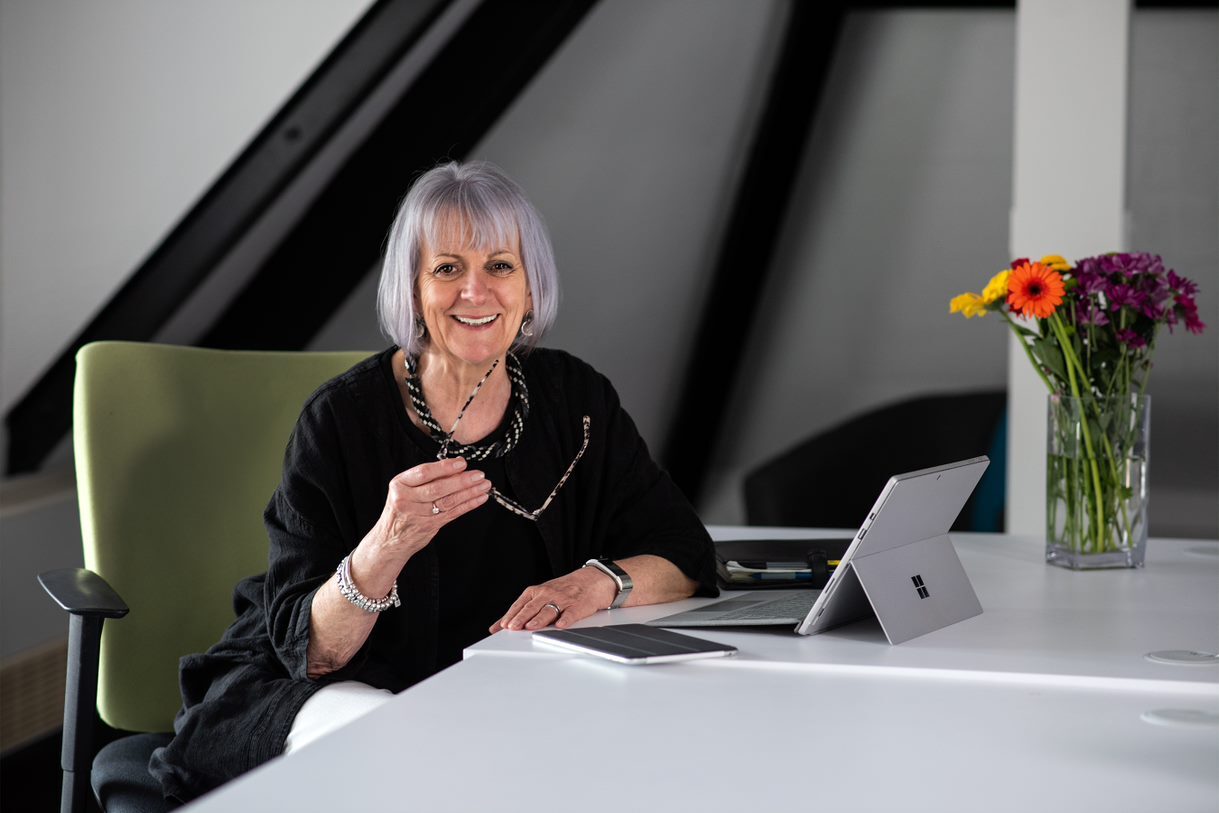As a teacher and school leader, Karen Ardley began her career as an expert in assessing and improving school standards. Passionate about creating real change within the educational leadership sector, Karen now delivers transformative, professional development courses for teachers all over the world through her leadership consultancy group Karen Ardley Associates.
From her advisory projects for UNESCO, UNRWA, the Aga Khan Foundation and the education ministries of the UK, UAE and Kenya, Karen understands good leadership. For her, it’s inextricably tied to good listening.
High quality professional learning experience is becoming key to recruitment.
As so much has changed about how we’re delivering education this year, staff and student wellbeing is obviously a high priority. There are many positive examples of how school leaders have looked after staff and students. They have kept them connected and let them know students are valued and cared about during the pandemic.
We hear from a lot of principals who believe some international staff may want to move closer to home now, or even return home, because a year without their families has made them really think through what’s important for them. If this is correct, recruitment is going to be absolutely key next year.
Apart from a good position in a quality school with a comprehensive package, schools now have to help teachers develop and perform as well as they possibly can. Ensuring they have sustainable capacity to develop and to deliver their own high-quality professional learning experience. That’s one of the biggest challenges schools are going to face moving forward.
So that power of listening is a fundamental building block to develop trust, openness, the sense of belonging that we want staff to feel.
Karen Ardley
A good school leader is a genuine, curious listener.
Teacher Horizons sat down with Karen for a conversation on the power of ineffective leadership and the necessity for good listening.
Teacher Horizons – Thanks for taking the time to talk with us Karen. In this period of immense change, how do you envision professional development will evolve moving forward?
Karen Ardley – Post pandemic, CPD for school staff will be delivered differently. We have made great progress with remote facilitation. In fact we’ve been very pleasantly surprised by how good the feedback from recent remotely facilitated programmes has been. It appears some participants actually prefer this model. The benefits of not having to travel to courses are both economic and good for work-life balance.
KAA Online has enabled us to provide genuine blended learning opportunities. Again, feedback is excellent about the blend of remotely facilitated group sessions and the chance to complete self-study modules either before or after.
We are also aiming to give schools the opportunity to build capacity in progressing their own professional learning. That’s why we’ve created facilitated versions of all the modules. That is a powerful next step for our subscription schools that will challenge their senior leaders who are aspirational. It’s a very different thing to facilitate learning for a group of professional colleagues, rather than a group of students in the classroom. In order to help busy leaders and teachers, we have created step by guidance and collated all the resources required to confidently facilitate high quality professional learning sessions in school.

TH – So with schools providing professional learning through KAA’s facilitated courses, teachers can access self-study modules on their own time. What do you hope that school leaders and teachers can gain from KAA Online?
When school leaders facilitate professional learning well, it gives people such a huge buzz, both the people who are participating, and the people who are facilitating. Fundamentally teachers want colleagues and students to succeed and be good at what they’re doing. Especially, if you have a community of learners, people who want to engage with professional learning not because they don’t think they’re good enough, but because they can be even better (I’m paraphrasing Dylan William here).
One of the things we’re very proud of as an organization is that everything that we do is underpinned by research. Many teachers feel that they are too busy to explore the research in detail, so what we try to do is to give them practical interpretation of research.
We also try to encourage people to take evidence-based research and say, ‘Okay, this is what this project found, does that work in my classroom?’ We want teachers to explore things through what we would call “disciplined inquiry”. Take some ideas from this evidence-based research project and try them in your classroom, see whether or not they work for you and your students.

TH – One of focuses of the mentoring and coaching skills modules is listening. That really resonated with me as a teacher, especially as a teacher from my generation. What do you think is the importance of listening and who needs that skill the most?
KA – We take it for granted, of course leaders should listen. I recently came across a quote from a man named Andy Stanley. And he said, “Leaders who don’t listen will eventually be surrounded by people who have nothing to say.” And I thought, how true is that? Because if people don’t feel heard, even if the leader asks questions and appears to be interested, and nothing changes after they’ve given an opinion, they will stop bothering. There’s no point saying anything to that leader.
Certainly, one of the things that is important in leadership is developing trust and a sense of belonging for staff. One of the key skills that a leader needs to develop is good listening. And combining that with a sense of genuine curiosity. When I’m working with leaders, there’s a magic phrase we can all learn to use and embed in our practice. Once you’ve posed a good question, and somebody is talking to you, that magic phrase is “tell me more”. It needs to be matched with appropriate body language, so you are really communicating, I want to hear more, I’m genuinely interested in what you think, feel, and have to say.
Leaders who don’t listen will eventually be surrounded by people who have nothing to say.
Andy Stanley
Research shows that if staff feel they are heard, even if the decision goes against what they would have preferred, they’ll still more likely go along if their voice was heard. So that power of listening is a fundamental building block to develop trust, openness, the sense of belonging that we want staff to feel.
TH – I’m sure a lot of our readers have experienced this type of leaders. If you have principals and middle leaders who don’t want to listen, colleagues will say, “I don’t talk to that boss anymore because they don’t listen to me.” On that topic what skills do you think most school leaders are lacking?
KA – One of the things that we always point to in leadership development programmes, is the power of being ineffectively led. Which surprises people sometimes when I say it. If we think back to how we felt when we were ineffectively led, it’s a really good lesson. Do you want other people to feel like that? I don’t want my leadership to make people feel that way.
A question that we ask throughout our leadership programmes is, “How does your leadership make people feel?” Thinking through how you want your team to feel – motivated, supported, challenged?
To your question, which skills are most often missing from school leadership, I’d say the fundamental one leader can do more is self-reflection – empathizing and thinking about how our actions are actually making people feel.

TH – What practices do you find are most successful to encourage self-reflection in educational leaders?
KA – You need something to reflect against. In our programmes and Online modules, we often ask people to reflect against standards and criteria for excellent leadership. We also encourage participants to think about an ineffective leader and go back to remember what those leaders did. There are more ways to be a bad leader than ways to be a good leader, which is great because there is overlap in the things that good leaders do.
They might do them differently according to context, but if you feel that you’re well led, there are far more similarities than if you are feeling ineffectively led. People can actually feel frightened, they can feel bullied, they can feel that they’re not being trusted. Some leaders can even go the other way; the leader can be too nice, or let things go and not set high standards. And that can make people feel indignant that some people are not working as hard as they could and not doing what’s best for the students.
A powerful activity is setting clear criteria and asking people to take time to reflect on that criteria. How could you make your team feel more engaged? More motivated? How can you develop trust within your team?
For a limited time, Karen Ardley Associates are providing special discounted rates for their most popular professional development courses, only for Teacher Horizons.
Interested in learning more about the partnership between Teacher Horizons and Karen Ardley Associates? Join Teacher Horizons now and speak with your international adviser about professional development opportunities with KAA.
Visit our Professional Learning Hub to connect and explore opportunities for professional growth, both as an individual and as a school.



